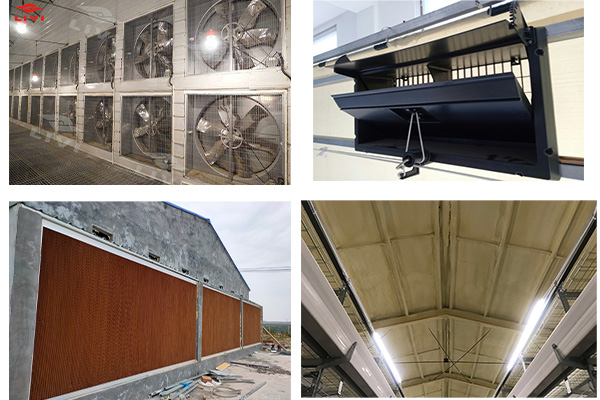Kenya Chicken Farm Embraces Automation: Enhancing Reputation with Cutting-Edge Equipment
Time : 2025-04-25
In the bustling heart of Kenya, the poultry industry is buzzing with activity, and one farm stands out for its commitment to innovation and efficiency. This article dives into the world of Kenya’s chicken farms and how the adoption of automated equipment has not only transformed their operations but also bolstered their reputation in the market.
The Rise of Kenya’s Chicken Farms
Kenya has seen a significant growth in its poultry sector over the past decade. With a growing population and increasing demand for protein-rich food, chicken farming has become a cornerstone of the country’s agricultural landscape. However, as the industry grew, so did the challenges.
Automation: A Game-Changer
Enter automated equipment, the game-changer that has revolutionized chicken farming in Kenya. These advanced systems are designed to streamline operations, reduce human error, and ultimately increase productivity. Let’s take a closer look at how they’re changing the game.
1. Egg Collection
One of the most crucial tasks in chicken farming is egg collection. Manually collecting eggs can be time-consuming and prone to damage. Automated egg collection systems, on the other hand, use sensors to detect eggs as they pass through the henhouse. This ensures that every egg is collected with precision, reducing breakage and improving overall quality.
2. Feeding Systems
Feeding chickens is another task that benefits greatly from automation. Modern farms are now equipped with automated feeding systems that deliver the right amount of feed at the right time. This not only ensures the health and well-being of the chickens but also optimizes feed conversion ratios, making the farm more economically viable.
3. Climate Control
Maintaining an optimal environment for chickens is critical for their health and productivity. Automated climate control systems monitor and adjust the temperature, humidity, and air quality in the henhouse, creating an ideal environment for the birds. This leads to higher survival rates and better growth rates.
4. Health Monitoring
Health is paramount in chicken farming. Automated health monitoring systems use sensors to track the chickens’ vital signs, such as heart rate and respiration. Any deviation from the norm can trigger an alert, allowing farmers to intervene quickly and prevent potential outbreaks.
Reputation Building
The adoption of automated equipment has not gone unnoticed. Farms that have embraced this technology are gaining a stellar reputation in the market. Here’s why:
1. Quality Assurance
By using automated systems, farms can ensure a consistent and high-quality product. Consumers are increasingly looking for reliable sources of chicken, and these farms are stepping up to meet that demand.
2. Efficiency
Efficiency is key in any business, and automated equipment allows farms to produce more with less effort. This not only reduces costs but also positions these farms as leaders in the industry.
3. Sustainability
Automated systems are also more sustainable. By reducing waste and optimizing resources, these farms are not only contributing to their bottom line but also to the environment.
Case Study: Kenya’s Premier Chicken Farm
Take the case of Kenya’s Premier Chicken Farm. This farm has been at the forefront of automation in the country. Their state-of-the-art facilities, equipped with cutting-edge automated equipment, have not only increased their productivity but also their market share.
The Results
– Increased Egg Production: The farm’s egg production has seen a 20% increase since implementing automated systems.
– Enhanced Product Quality: The reduction in breakage and better health monitoring has resulted in a higher-quality product.
– Improved Reputation: The farm’s commitment to innovation and efficiency has earned them a strong reputation among consumers and competitors alike.
Conclusion
The integration of automated equipment in Kenya’s chicken farms is not just a trend; it’s a transformative force that is reshaping the industry. By increasing efficiency, ensuring quality, and promoting sustainability, these farms are not only improving their operations but also solidifying their reputation. As the industry continues to evolve, one thing is clear: automation is the future of chicken farming in Kenya.












